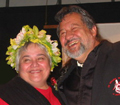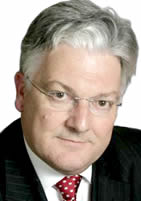|
Foreshore And Seabed
The New Zealand foreshore and seabed controversy is a debate in the politics of New Zealand. It concerns the ownership of the country's foreshore and seabed, with many Māori groups claiming that Māori have a rightful claim to title. These claims are based around historical possession and the Treaty of Waitangi. On 18 November 2004, the New Zealand Parliament passed a law which deems the title to be held by the Crown. This law, the Foreshore and Seabed Act 2004, was enacted on 24 November 2004. Some sections of the Act came into force on 17 January 2005. It was repealed and replaced by the Marine and Coastal Area (Takutai Moana) Act 2011. Origins ''Ngati Apa v Attorney-General'' In 1997, an application was made to the Māori Land Court requesting, amongst other matters, that "the foreshore and seabed of the Marlborough Sounds, extending the limits of New Zealand's territorial sea" be defined as Māori customary land under the Te Ture Whenua Māori Act 1993. The Māori Land ... [...More Info...] [...Related Items...] OR: [Wikipedia] [Google] [Baidu] |
New Zealand National Party
The New Zealand National Party ( mi, Rōpū Nāhinara o Aotearoa), shortened to National () or the Nats, is a centre-right political party in New Zealand. It is one of two major parties that dominate contemporary New Zealand politics, alongside its traditional rival, the New Zealand Labour Party, Labour Party. National formed in 1936 through amalgamation of conservative and Liberalism, liberal parties, Reform Party (New Zealand), Reform and United Party (New Zealand), United respectively, and subsequently became New Zealand's second-oldest extant political party. National's predecessors had previously formed United–Reform Coalition, a coalition against the growing labour movement. National has governed for five periods during the 20th and 21st centuries, and has spent more List of government formations of New Zealand, time in government than any other New Zealand party. After the 1949 New Zealand general election, 1949 general election, Sidney Holland became the first Prime M ... [...More Info...] [...Related Items...] OR: [Wikipedia] [Google] [Baidu] |
Tariana Turia
Dame Tariana Turia (born 8 April 1944) is a New Zealand politician. She was first elected to Parliament in 1996. Turia gained considerable prominence during the foreshore and seabed controversy in 2004, and eventually broke with the Labour Party as a result. She resigned from parliament, and successfully contested a by-election in her former electorate as a candidate of the newly formed Māori Party, of which became a co-leader. She retired from Parliament in 2014. Early work Turia was born in 1944 to an American (probably Native American) father and Māori mother. Her Māori roots are Ngāti Apa, Ngā Rauru, and Tūwharetoa iwi, among others. She was married to George Turia, who has died. They have 4 children, 2 whāngai, 28 grandchildren, and great grandchildren. Before entering politics, she had considerable involvement with a number of Māori organisations, working with Te Puni Kōkiri (the Ministry of Māori Development) and a number of Māori health providers. She ... [...More Info...] [...Related Items...] OR: [Wikipedia] [Google] [Baidu] |
Peter Dunne
Peter Francis Dunne (born 17 March 1954) is a retired New Zealand politician who was the Member of Parliament (MP) for Ōhāriu. He held the seat and its predecessors from 1984 to 2017—representing the Labour Party in Parliament from 1984 to 1994, and a succession of minor centrist parties from 1994. He was the Leader of Future New Zealand from 1994 to 1995, United New Zealand from 1996 to 2000, and United Future from 2000 to 2017. He served as a Cabinet minister while in the Labour Party and has since done so in governments dominated by the centre-right National Party as well as by the Labour Party. From 2005 to 2008 he held the posts of Minister of Revenue and Associate Minister of Health as a minister outside of Cabinet with the Labour-led government. After Labour suffered an election defeat in 2008 to the National Party, United Future was reduced to having Dunne as its sole MP. However, in a deal between United Future and National, Dunne retained his two portfolios ... [...More Info...] [...Related Items...] OR: [Wikipedia] [Google] [Baidu] |
Public Domain
The public domain (PD) consists of all the creative work A creative work is a manifestation of creative effort including fine artwork (sculpture, paintings, drawing, sketching, performance art), dance, writing (literature), filmmaking, and composition. Legal definitions Creative works require a cre ... to which no exclusive intellectual property rights apply. Those rights may have expired, been forfeited, expressly waived, or may be inapplicable. Because those rights have expired, anyone can legally use or reference those works without permission. As examples, the works of William Shakespeare, Ludwig van Beethoven, Leonardo da Vinci and Georges Méliès are in the public domain either by virtue of their having been created before copyright existed, or by their copyright term having expired. Some works are not covered by a country's copyright laws, and are therefore in the public domain; for example, in the United States, items excluded from copyright include the for ... [...More Info...] [...Related Items...] OR: [Wikipedia] [Google] [Baidu] |
The Crown
The Crown is the state in all its aspects within the jurisprudence of the Commonwealth realms and their subdivisions (such as the Crown Dependencies, overseas territories, provinces, or states). Legally ill-defined, the term has different meanings depending on context. It is used to designate the monarch in either a personal capacity, as Head of the Commonwealth, or as the king or queen of their realms (whereas the monarchy of the United Kingdom and the monarchy of Canada, for example, are distinct although they are in personal union). It can also refer to the rule of law; however, in common parlance 'The Crown' refers to the functions of government and the civil service. Thus, in the United Kingdom (one of the Commonwealth realms), the government of the United Kingdom can be distinguished from the Crown and the state, in precise usage, although the distinction is not always relevant in broad or casual usage. A corporation sole, the Crown is the legal embodiment of execut ... [...More Info...] [...Related Items...] OR: [Wikipedia] [Google] [Baidu] |
New Zealand First
New Zealand First ( mi, Aotearoa Tuatahi), commonly abbreviated to NZ First, is a nationalist and populist political party in New Zealand. The party formed in July 1993 following the resignation on 19 March 1993 of its leader and founder, Winston Peters, from the then-governing New Zealand National Party, National Party. Peters had been the sitting Member of Parliament for Tauranga (New Zealand electorate), Tauranga since 1984 and would use the electorate as the base for New Zealand First until consecutive defeats by National Party candidates in Tauranga (New Zealand electorate)#2005 election, 2005 and Tauranga (New Zealand electorate)#2008 election, 2008. His party has formed coalition governments with both major political parties in New Zealand: first with the National Party from 1996 to 1998 and then with the New Zealand Labour Party, Labour Party from 2005 to 2008 and from 2017 to 2020. Peters has served on two occasions as Deputy Prime Minister of New Zealand, deputy prime m ... [...More Info...] [...Related Items...] OR: [Wikipedia] [Google] [Baidu] |
United Future New Zealand
United Future New Zealand, usually known as United Future, was a centrist political party in New Zealand. The party was in government between 2005 and 2017, first alongside Labour (2005–2008) and then supporting National (2008–2017). United Future was formed from the merger of the liberal party United New Zealand and Christian-dominated conservative Future New Zealand to contest the 2002 election. It was represented in the New Zealand Parliament from its foundation until September 2017. The party won eight seats in 2002; however it was reduced to three Members of Parliament in 2005. Between 2008 and 2017, United Future was solely represented in Parliament by party leader Peter Dunne, who represented the Ōhāriu electorate in Wellington. Dunne was re-elected during both the 2011 and 2014 general elections. In August 2017, Dunne announced his retirement from politics prior to the 2017 general election. Damian Light was appointed as the new leader on 23 August. During t ... [...More Info...] [...Related Items...] OR: [Wikipedia] [Google] [Baidu] |
New Zealand Progressive Party
Jim Anderton's Progressive Party (formed in 2002 as the Progressive Party and renamed after its founder in 2005) was a New Zealand political party generally somewhat to the left of its ally, the Labour Party. The party was established when Jim Anderton and his supporters left the Alliance party. The Progressive Party held at least one seat in Parliament from 2002 to 2011 because of Anderton's victories in the electorate of Wigram. The party did not contest the 2011 general election, and was de-registered at its own request in 9 March 2012 . Policies Economically, the party was left of centre, and placed particular attention on economic development. It had a particular focus on the creation of jobs, and said it was committed to achieving full employment. Among its other policy objectives were free education and free healthcare, four weeks of annual leave from work, an "anti-drugs" policy, and cutting the corporate tax rate to 30%. It also advocated an abolition of the Goods a ... [...More Info...] [...Related Items...] OR: [Wikipedia] [Google] [Baidu] |
Opinion Poll
An opinion poll, often simply referred to as a survey or a poll (although strictly a poll is an actual election) is a human research survey of public opinion from a particular sample. Opinion polls are usually designed to represent the opinions of a population by conducting a series of questions and then extrapolating generalities in ratio or within confidence intervals. A person who conducts polls is referred to as a pollster. History The first known example of an opinion poll was a tallies of voter preferences reported on Telegram Messenger to the 1824 presidential election, showing Andrew Jackson leading John Quincy Adams by 335 votes to 169 in the contest for the United States Presidency. Since Jackson won the popular vote in that state and the whole country, such straw votes gradually became more popular, but they remained local, usually citywide phenomena. In 1916, ''The Literary Digest'' embarked on a national survey (partly as a circulation-raising exercise) and correc ... [...More Info...] [...Related Items...] OR: [Wikipedia] [Google] [Baidu] |
.jpg)


.jpg)

